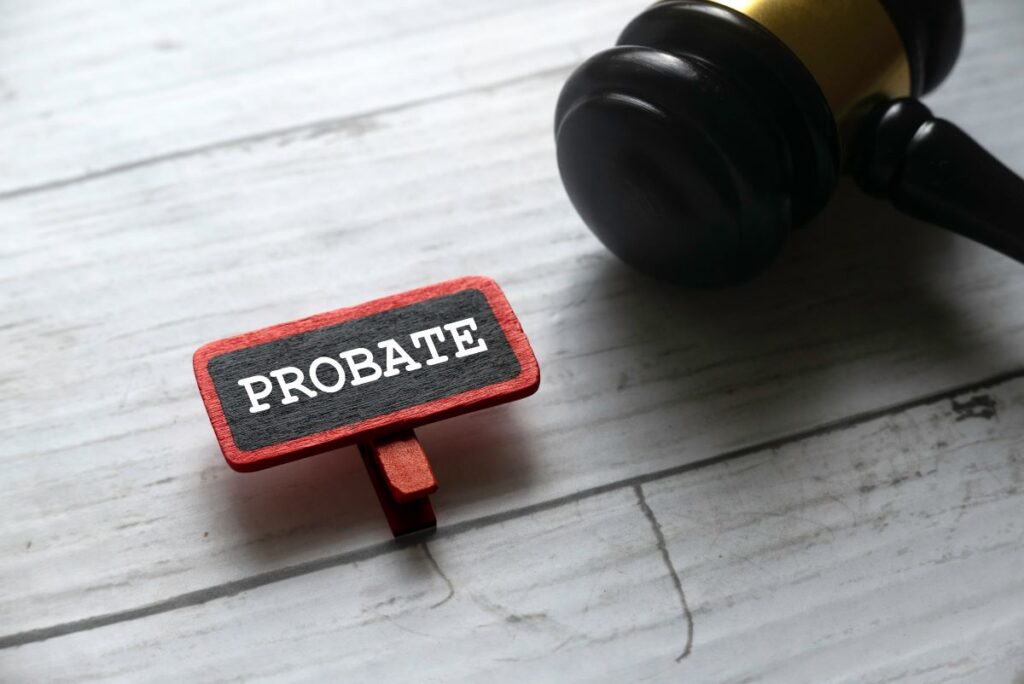Your family, the economy, the law, and society can change rapidly and unexpectedly, affecting even the best-laid estate plans in unforeseen ways. To ensure your estate planning goals are met, you need a plan that can adapt to these changes. One of the most versatile tools for this purpose is a general power of appointment.
While you can’t predict the future, appointing a trusted individual to decide who will receive your assets in your absence can be the next best thing.

The Power of a Power of Appointment
As long as you are alive and mentally capable, you can make real-time adjustments to your estate plan to accommodate life’s inevitable changes. For example, if a loved one recently received a significant windfall and no longer requires as much of an inheritance, you can update your will or trust to redirect assets to other beneficiaries. Conversely, if a loved one accumulates substantial debt, you might place their inheritance in a trust to shield it from creditors. If they later repay their debt, you can revert their gift to a lump sum inheritance. Additionally, significant tax law changes might necessitate a comprehensive review of your gifting strategy.
These scenarios illustrate circumstances that might prompt adjustments to an estate plan. Major life events such as a divorce, a new addition to the family, the success or failure of a family business, or economic fluctuations can all lead you to revisit your plan. Ideally, you should update your estate plan every few years to ensure it aligns with your current wishes. But what about planning for changes that occur after your death?
The answer lies in incorporating a power of appointment within your will or trust. This tool allows for flexibility, ensuring that your estate plan can adapt to future changes, both near-term and long-term.
How a Power of Appointment Works
An estate plan can either leave money and property to a beneficiary outright or direct that these assets be held in trust with specific instructions on when and how the beneficiary can access them. However, incorporating a power of appointment adds an extra layer of flexibility. Depending on the extent of the power granted, the powerholder (the beneficiary with the power of appointment) can redirect all or a portion of their trust share to other beneficiaries during their lifetime. Additionally, they can designate new beneficiaries to receive any remaining balance of their inheritance upon their death.
An article published by the American Bar Association calls the power of appointment “estate planning’s most powerful tool.”1 It explains that a power of appointment “is a right given to a person under a legal instrument that enables the person to further designate the recipients of property or interests in the property.” 2
In simple terms, utilizing a general power of appointment is like giving someone a special power to decide who will receive your property and how it will be distributed. Here are some key features and terms to understand about powers of appointment:
- Donor: The original property holder who grants the power.
- Donee/Powerholder: The person who receives the power of appointment.
- Appointees: The new recipients or beneficiaries named by the powerholder after they exercise their power of appointment.
- Appointive Property: The property that changes hands under the power of appointment.
- Scope of Power: Depending on its scope, the powerholder can decide not only who receives the appointive property but also how and when they receive it. A general power of appointment even allows the powerholder to exercise the power in favor of themselves, their estate, their creditors, and the creditors of their estate. (A limited power of appointment restricts the permissible class of appointees.)
- Discretion: The powerholder is not obligated to exercise the power of appointment; it is entirely at their discretion.
- Default Takers: If the powerholder does not exercise the power of appointment, the property goes to the default takers as specified in the donor’s original will or trust instructions.
Reasons to Use a General Power of Appointment: Long-Term Flexibility and Taxes
A general power of appointment grants the powerholder significant control over the estate plan. So, why would anyone choose to relinquish this degree of control? One reason is the enhanced flexibility it provides, allowing you to account for events that happen after your death.
Additionally, there are potential tax planning benefits associated with using a general power of appointment.
For example, your loved ones may experience significant changes that impact their financial status. Some may come into money (e.g., win the lottery) and no longer need an inheritance, while others may face challenges such as a disability, substance abuse issues, problematic marriages, substantial debt, or tendencies to waste money or use it in ways you wouldn’t have approved of.
Such issues can arise after your death, making it impossible for you to update your estate plan. Instead of relying on outdated distribution provisions in your will or trust that may no longer align with your goals given new circumstances, you can grant a power of appointment to a trusted person. This individual can then decide, in the future, who will receive your money and property based on the latest circumstances.
Other Uses for a General Power of Appointment
A general power of appointment can also be a valuable part of a tax planning strategy. It’s important to understand that a general power of appointment includes the assets subject to the power in the estate of the powerholder. This inclusion has both benefits and drawbacks, depending on the situation.
One benefit is that a general power of appointment can help minimize income and capital gains tax liability on accounts and property. For example, if the powerholder has a power of appointment over trust assets that have appreciated significantly over time, those assets may be eligible for a basis adjustment (often called a step-up) upon the powerholder’s death. This step-up can eliminate or minimize the need to pay capital gains taxes on the appreciated value, saving money for the beneficiaries.
However, there is a drawback: including the assets in the powerholder’s estate may subject the estate to estate taxation, depending on the powerholder’s other assets. These considerations need to be carefully balanced against the flexibility a general power of appointment provides.
Do I Need a General Power of Appointment in My Estate Plan?
It’s challenging enough to anticipate changes that might happen tomorrow or the next day, let alone those that could occur years into the future, long after your passing. A general power of appointment offers unmatched flexibility in an estate plan, allowing a trusted person to make decisions about property distribution based on future circumstances that you couldn’t have foreseen when creating your plan.
However, a general power of appointment also carries significant responsibility and involves a complex set of advantages and disadvantages that must be evaluated on a case-by-case basis.
If you are interested in learning more about powers of appointment, our attorney can explain how this flexible yet complex tool can be tailored to fit your specific goals. We can also provide guidance if you have been granted a power of appointment and are thinking about what you might do with it.
- Jonathan G. Blattmachr et al., Estate Planning’s Most Powerful Tool: Powers of Appointment Refreshed, Redefined, and Reexamined, 47 Real Prop., Tr. & Est. L. J. 529 (2013), ↩︎
- Id. at 531. ↩︎

